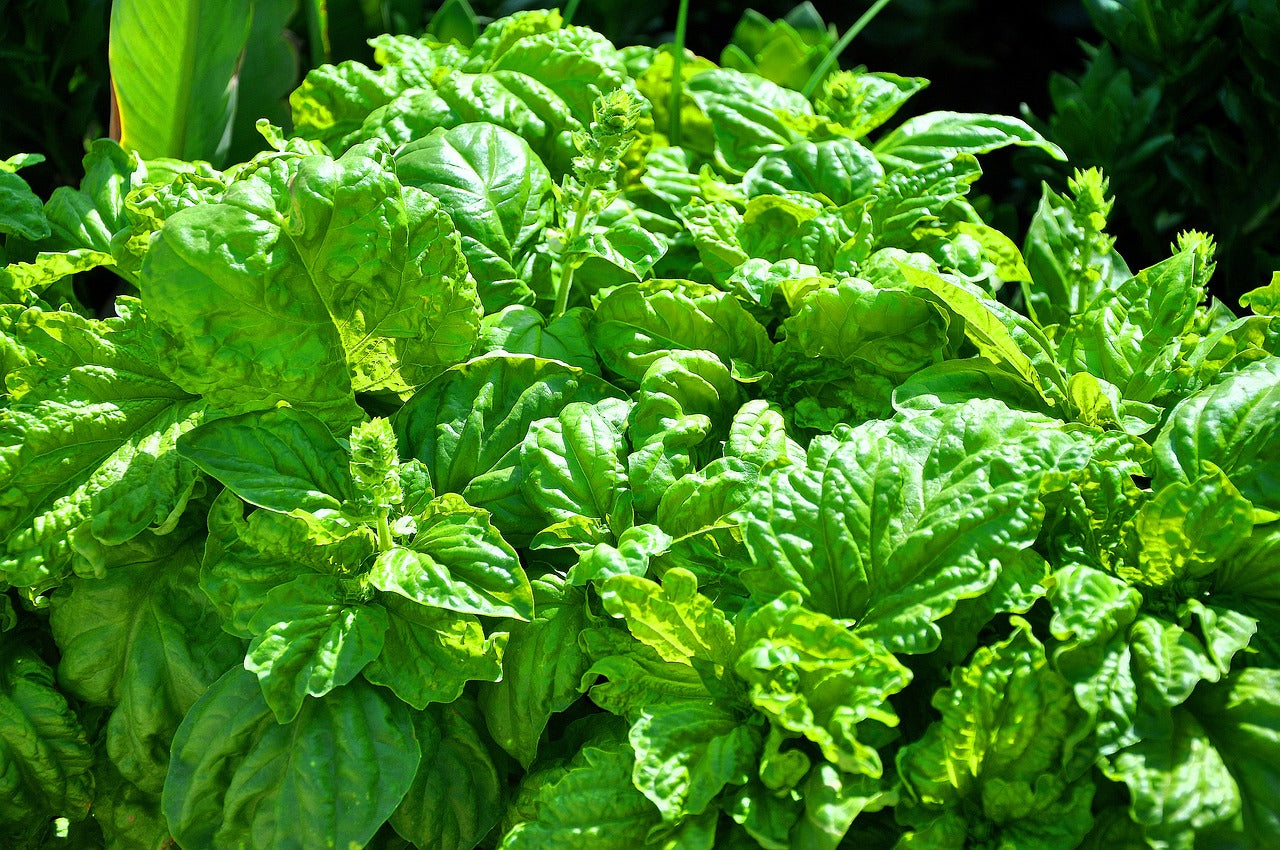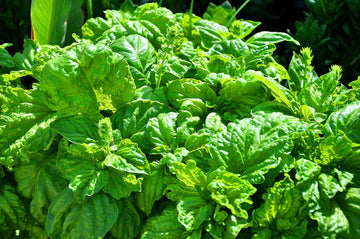Botanical Name: Ocimum basilicum
Types of Plant: Herbaceous
Part of the Plant used: Leaves, flowers
Description: Basil, scientifically known as Ocimum basilicum, is a fragrant herbaceous plant belonging to the Lamiaceae family. Native to tropical regions of Asia and Africa, Basil is esteemed for its culinary, medicinal, and cultural significance. It is characterized by its aromatic leaves, which vary in color from green to purple, and small white or purple flowers. Basil comes in various cultivars, each with its unique flavor profile, ranging from sweet and citrusy to spicy and peppery.
Benefits:
- Culinary Uses: Basil is a staple herb in various cuisines worldwide, prized for its fresh, aromatic flavor. Its leaves are commonly used fresh or dried to add depth and complexity to dishes such as pasta sauces, salads, soups, and pesto. Basil pairs well with tomatoes, garlic, olive oil, and cheese, enhancing the overall taste of the dish.
- Medicinal Properties: Basil possesses numerous medicinal properties, making it a valuable herb in traditional medicine systems. It is known for its anti-inflammatory, antioxidant, antimicrobial, and analgesic properties. Consuming Basil may help alleviate digestive issues, respiratory ailments, inflammation, and oxidative stress.
- Aromatherapy: The essential oil extracted from Basil leaves is utilized in aromatherapy for its calming and uplifting effects on the mind and body. Diffusing Basil essential oil in the air or adding it to massage oils and bath products promotes relaxation, mental clarity, and emotional well-being.
- Cultural Significance: Basil holds cultural significance in various societies and religions. In Hindu culture, it is revered as a sacred herb associated with gods and goddesses. Basil is often used in religious rituals, ceremonies, and offerings as a symbol of purity, protection, and prosperity.
Cultivation:
Growing Conditions:
- Sunlight: Basil thrives in full sunlight but can tolerate partial shade. Provide at least 6-8 hours of sunlight daily for optimal growth.
- Soil: Well-draining, fertile soil with a pH level between 6.0 and 7.0 is ideal for Basil. Loamy or sandy soil enriched with organic matter promotes healthy growth and flavor development.
- Water: Keep the soil consistently moist but not waterlogged. Water Basil plants regularly, especially during hot, dry periods, to prevent wilting and promote lush foliage.
- Climate: Basil prefers warm temperatures between 70°F to 90°F (21°C to 32°C) and is sensitive to frost. It is commonly grown as an annual herb in temperate climates but can be cultivated as a perennial in tropical regions.
Harvesting and Storage of Basil:
- Harvest Basil leaves as needed for fresh use or drying.
- Use scissors or pruning shears to cut stems just above a set of leaves.
- Store fresh Basil leaves in the refrigerator for up to one week. Alternatively, dry them in a well-ventilated area away from direct sunlight for long-term storage.
Medicinal Uses:
- Herbal Tea: Steep fresh or dried basil leaves in hot water to make a soothing herbal tea. Basil tea helps alleviate digestive discomfort, reduce inflammation, and promote relaxation.


